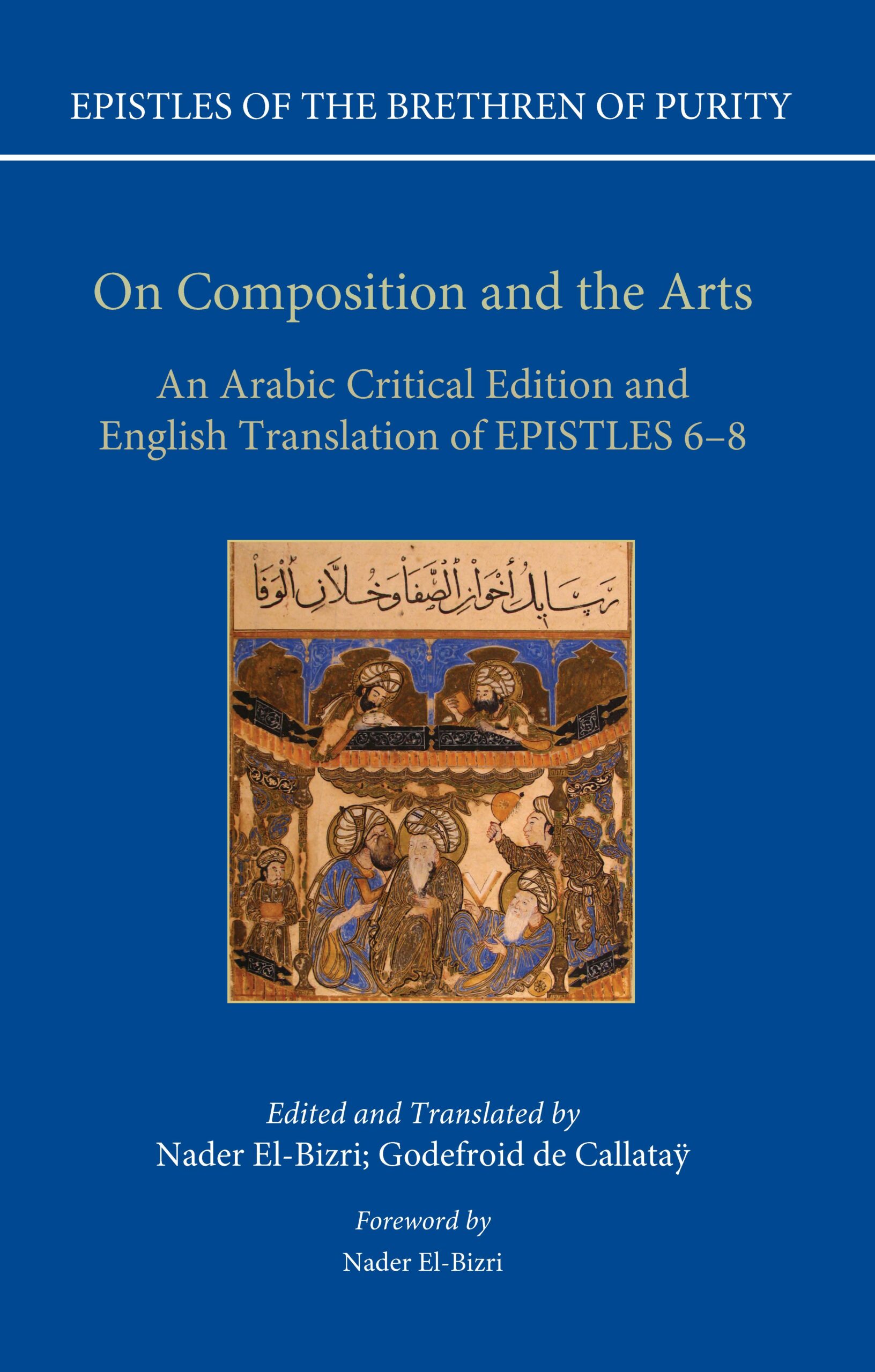The Ikhwān al-ṢafāʾFrom Arabic, lit. ‘Brethren of Purity’, a group of learned scholars who were based in Basra and Baghdad around the last quarter of the t10th century CE. It is more… (Brethren of Purity), the anonymous adepts of a tenth-century esoteric fraternity based in Basra and Baghdad, hold an eminent position in the history of science and philosophy in Islam due to the wide reception and assimilation of their monumental encyclopaedia, the Rasāʾil Ikhwān al-Ṣafāʾ (Epistles of the Brethren of Purity). This compendium contains fifty-two epistles offering synoptic accounts of the classical sciences and philosophies of the age; divided into four classificatory parts, it treats themes in mathematics, logic, natural philosophy, psychology, metaphysics, and theology, in addition to didactic fables.
Epistles 6 to 8 are from the first division of the Epistles, on the propaedeutical and mathematical sciences. Epistle 6 develops ideas concerning natural numbers and their arithmetic, geometric, and harmonic proportions, marked by the influence of Nicomachus of Gerasa and of Euclid. The Brethren here emphasize practical applications of proportionality in music, medicine, and alchemy. Epistle 7 addresses theoretical scientific knowledge as directed towards the spiritual realities of souls, the goal of which is to actualize human potential; this epistle also presents a remarkable classification of sciences. Epistle 8 surveys material cultures in the Islamicate mediaeval milieu, embellished by a consideration of the effects of the heavenly bodies on the predisposition of individuals to follow specific trades. These three epistles are underpinned by the Brethren’s perennial tropes of the microcosm–macrocosm analogy and the emanative hierarchy of existents.
Foreword, Nader El-Bizri
Introductions and Translations
Epistle 6, Nader El-Bizri
Epistle 7, Godefroid de Callataÿ
Epistle 8, Nader El-Bizri
Appendix A
Bibliography
Index
Index Locorum
Arabic Part
Risāla 6, Nader El-Bizri
Risāla 7, Godefroid de Callataÿ
Risāla 8, Nader El-Bizri
Arabic Subject Index
Nader El-Bizri is a Professor of Philosophy and the Director of the Civilization Studies Program at the American University of Beirut. He previously taught at the University of Cambridge, the University of Nottingham, and the University of Lincoln. He is also affiliated with the Institute of Ismaili Studies in London and the Centre National de la Recherche Scientifique in Paris. He has published widely in the field of Arabic sciences and philosophy, and he serves on various prestigious editorial boards of book series and journals, also acting as the General Editor of the present Epistles of the Brethren of Purity series.
Godefroid de Callataÿ is Professor of Arabic and Islamic Studies at the Oriental Institute of the University of Louvain. He specializes in the history of Arabic sciences and philosophy, and the role played by Islam in the transmission of Hellenic knowledge to the Latin West during the Middle Ages. Amongst other subjects, he has published extensively on the Rasāʾil Ikhwān al-Ṣafāʾ, and has already edited and translated Epistle 36, and, together with Bruno Halflants, the short version of the epistle on magic (52a). Since 2017, he also directs ‘PhilAnd – The origin and early development of philosophy in tenth-century al-Andalus: The impact of ill-defined materials and channels of transmission’, an Advanced ERC project based at the University of Louvain and the Warburg Institute.

